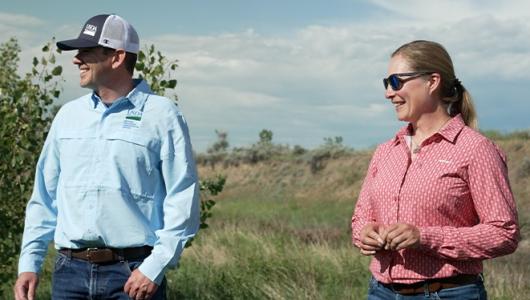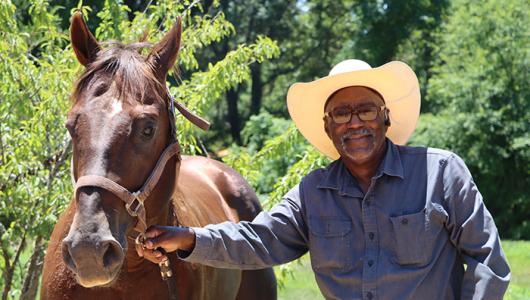This Friday meet Michelle Wheeler of River Bend Blooms in Scottsville, Kentucky. What started as a small business has blossomed into a beautiful, sustainable farm spanning 227 acres. The farm’s natural beauty and vibrant ecosystems make it a haven for nature lovers, photographers, and anyone seeking a peaceful connection with the outdoors.
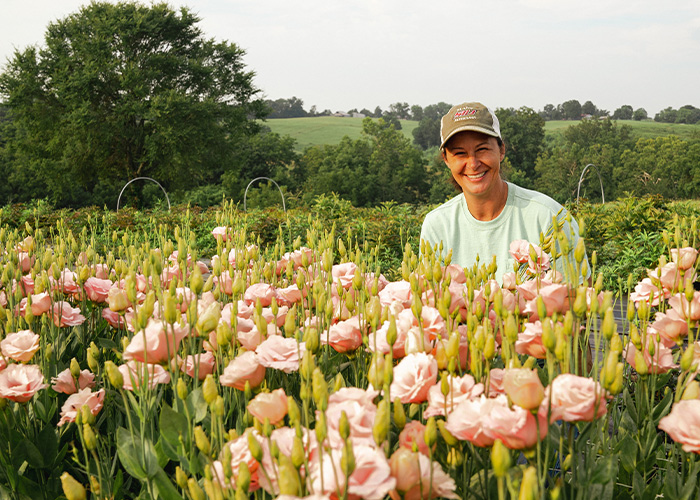
“I like to say that I failed at vegetables so I could succeed with flowers,” said Michelle.
One of the standout features of River Bend Blooms is the nine acres in flower fields that burst into color from April through October. Visitors can stroll through rows of stunning blooms, taking in the vivid colors and sweet fragrances.
The Next Level
Michelle’s success with River Bend Blooms is not a solitary achievement. She spent many long winters nurturing her flowers in low tunnel hoop houses, ensuring they would survive the cold months and be ready for the growing season. However, Michelle knew that to take her business to the next level, she would need to make some changes. She contacted her local USDA Natural Resources Conservation Service (NRCS) office and applied for a high tunnel through the Environmental Quality Incentives Program (EQIP).
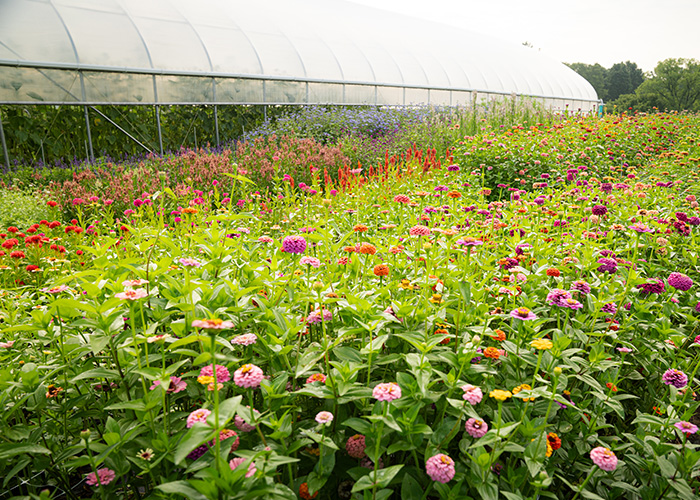
Through EQIP, Michelle has installed four high tunnels on her property over the last three years, enabling her to expand her operation and grow flowers, year-round.
“It was a complete game changer for us,” said Michelle. "The quality of the flowers is better than what we had been growing in the little tunnels.”
With the extended growing season, Michelle was able to introduce new flower varieties. She now grows an even more comprehensive range of flowers, including dahlias, ranunculus, and lisianthus, which have become customer favorites. These additions increased the variety of flowers she could offer and attracted more visitors and customers to her farm. People are drawn to the fresh, vibrant blooms that Michelle so carefully cultivates, and her reputation for providing high-quality, beautiful flowers continues to grow.
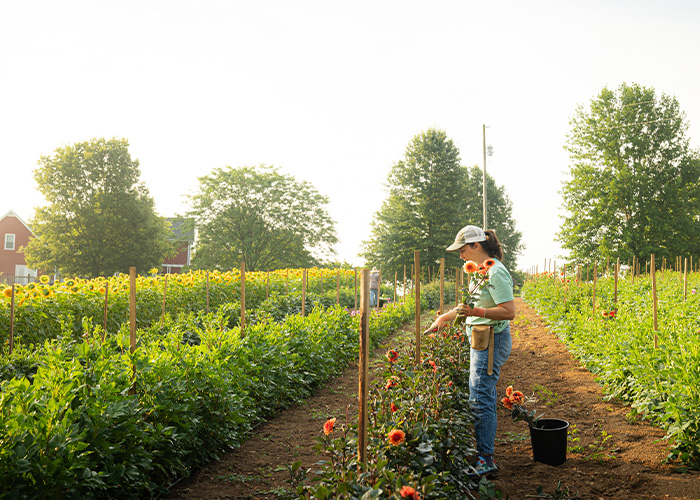
Nurturing the Local Ecosystem
Beyond the flower fields, River Bend Blooms is a beacon of environmental stewardship. Michelle's unwavering dedication to nurturing the local ecosystem is evident in the 20 acres she has set aside for pollinators and the planting of native trees. This sanctuary is a thriving habitat for bees, butterflies, and other pollinators, essential for a healthy environment. The native trees provide a haven for birds and wildlife, fostering biodiversity.
Michelle's efforts to promote sustainability extend beyond her flower fields; she is actively creating a sanctuary where nature can flourish.
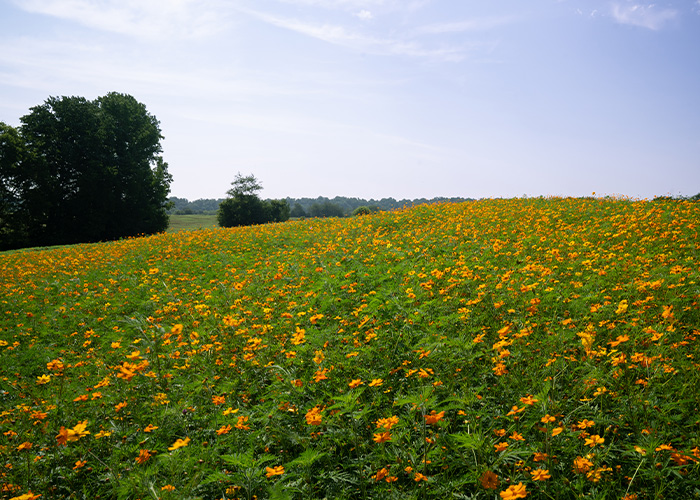
Michelle sells her flowers at the local farmers market from March to November. Her farm-fresh flowers are always in high demand, with people lining up to take home colorful bouquets. In the summer, she offers a weekly bouquet subscription service that has gained a loyal following. Subscribers look forward to receiving their seasonal floral arrangements, which brighten up their homes and connect them to the beauty of the farm.
Michelle's success with River Bend Blooms is a testament to her hard work and determination, as well as the impact of EQIP, “we are very thankful for the Natural Resources Conservation Service and their staff for helping us expand our operation.”
Her passion for flowers and commitment to sustainability and environmental stewardship have transformed her farm into a flourishing business and a local destination. River Bend Blooms is not just a flower farm, it's a place where people can experience the beauty of nature, support local agriculture, and be part of a community that values the environment and small businesses.
More Information
Visit local farms, ranches, forests, and resource areas through our Fridays on the Farm stories. Meet farmers, producers and landowners who are working to improve their operations with USDA programs.
USDA offers a variety of risk management, disaster assistance, loan, and conservation programs to help producers weather ups and downs in the market and recover from natural disasters as well as invest in improvements to their operations. Learn about additional programs.
For more information about USDA programs and services, contact your local USDA service center.
Justin Pius is the public affairs specialist for NRCS in Kentucky.

